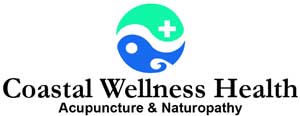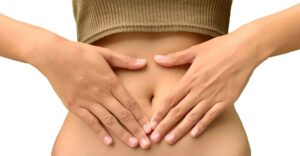Headaches and migraines affect a large number of people. They range from a discomfort to a severe impairing condition.
Most of the time the person that suffers from these issues is given something that provides rapid relief, not a permanent solution. Unfortunately the medications to either prevent or treat an acute episode can have severe side effects.
The best approach is to find and eliminate the root cause, and a good place to begin is lifestyle.
In our modern world we tend to be stressed, unrested, malnourished, toxic, and inflamed; while at the same time wanting to thrive, eat what we want, reproduce, have perfect digestion, and a fulfilling romantic life. This combination just doesn’t work.
A headache is a wake up call to encourage us to look at how we are living. How is our diet? Are we getting the right nutrients? Are we using products on our skin or household that are hormone disruptors? What is our level of stress?
The most common causes of headaches and migraines are:
- Dehydration
- Teeth clenching
- Sleep apnea. Poor sleep
- Food intolerance. Gluten, dairy, aspartame, MSG. Preservatives, additives.
- Seasonal changes. Environmental allergies
- Menstrual cycles. Mainly estrogen dominance.
- Insufficient magnesium
- Constipation
- Stress
Some Natural Options to Help Prevent and Treat Headaches and Migraines
- Hydration. Nothing works well when our body is dehydrated. Make sure you drink enough water during the day
- Magnesium. This is the most common insufficiency. Magnesium helps with, stress, sleep and is food for the brain. The best kind is Magnesium Threonate, it can cross the blood-brain barrier.
- Vitamin B2. In studies this water-soluble vitamin was proven to be as efficient as medication to help migraines. B2 improves cell metabolism and the metabolism of stress hormones. Food sources are yoghurt, eggs, spinach, almonds.
- CoQ10. Is involved in cell respiration.
- Vitamin D. People that have low levels of this vitamin tend to have more headaches and migraines.
- Acupuncture. There is consistent evidence that acupuncture is beneficial in the treatment of acute migraine attacks and is at least as effective as preventive drug treatments with fewer adverse effects.
- Stress relief. Use strategies like breathing, hot/cold exposure, yoga, Tai Chi, acupuncture, meditation, gratitude, and massage to activate the parasympathetic nervous system.
- Elimination diet. If you suspect that there are foods that could be causing headaches or migraines, try removing them from your diet for a couple of weeks.
- Peppermint Oil. A bit of peppermint oil rubbed on the temples, or intranasal, can alleviate headaches and prevent migraines.
References
https://pubmed.ncbi.nlm.nih.gov/22426836/
Why all migraine patients should be treated with Magnesium.
https://www.ncbi.nlm.nih.gov/pmc/articles/PMC3291665/
The role of acupuncture in the treatment of migraines.
https://www.ncbi.nlm.nih.gov/pmc/articles/PMC6647908/
Peppermint and migraine attacks.
The School for Applied Functional Medicine.
Headache, from Rapid Relief to Root cause Interconnectedness.
Ursula Schmidt, LAc





